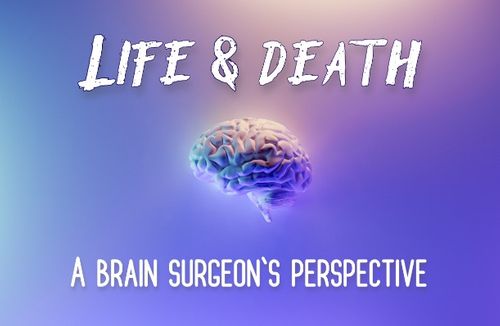Paul Kalanithi’s unique perspective on mortality
May 20, 2022 · 4 mins read
0
Share

The fragile glory of the brain
A terminal diagnosis makes you reassess your values and priorities – not just when you get the news, but right up until your dying breath. This is a lesson that neurosurgeon Paul Kalanithi learned while battling metastatic lung cancer.
Save
Share
Kalanithi’s memoir, When Breath Becomes Air, became a bestseller after his death at the age of 37. What makes it powerful is his unique perspective on mortality as someone who tried (and often failed) to save lives before having his own life cut short.
Save
Share
Growing up as an avid reader, Kalanithi saw a connection between literature (which describes human meaning) and the brain (which facilitates that meaning). That led him to broaden his studies, signing up for neuroscience and biology classes alongside ones in literature.
Save
Share
Kalanithi eventually realized that the biggest questions in life often crop up in a medical context – not just for the patient, but for the doctor. That had a huge impact on how he viewed the world.
Save
Share
The brain is what makes life meaningful, yet it’s an extremely vulnerable organ. Any type of surgery on it poses risks, but certain areas are considered sacred (like the part responsible for identity). Even a millimeter’s misjudgment can result in paralysis or loss of language.
Save
Share
Conversation with patients or their loved ones typically boils down to two key questions. 1) “What functions might be in jeopardy with this surgery?” 2) “At what point is the risk too great?” But Kalanithi felt that he was essentially asking: “When does life stop being meaningful
Save
Share
Kalanithi saw similarities between his role as a doctor and that of a priest: guiding people through difficult decisions that would shape their future. This practice of helping people make sense of their lives and cope with death’s inevitability became core to his identity.
Save
Share
Deciding who could be saved, who couldn’t, and who shouldn’t felt impossible. Kalanithi had to learn from his mistakes, like saving a patient at the last moment only to realize that it condemned them to a life not worth living.
Save
Share
These failures taught Kalanithi that “technical excellence is a moral requirement” in neurosurgery. Intentions are not enough when the boundary between tragedy and triumph is so razor-thin.
Save
Share
But when a terminal diagnosis turned Kalanithi into a patient himself, he had to wrestle with another big question: “What makes life worth living in the face of death?”
Save
Share
0